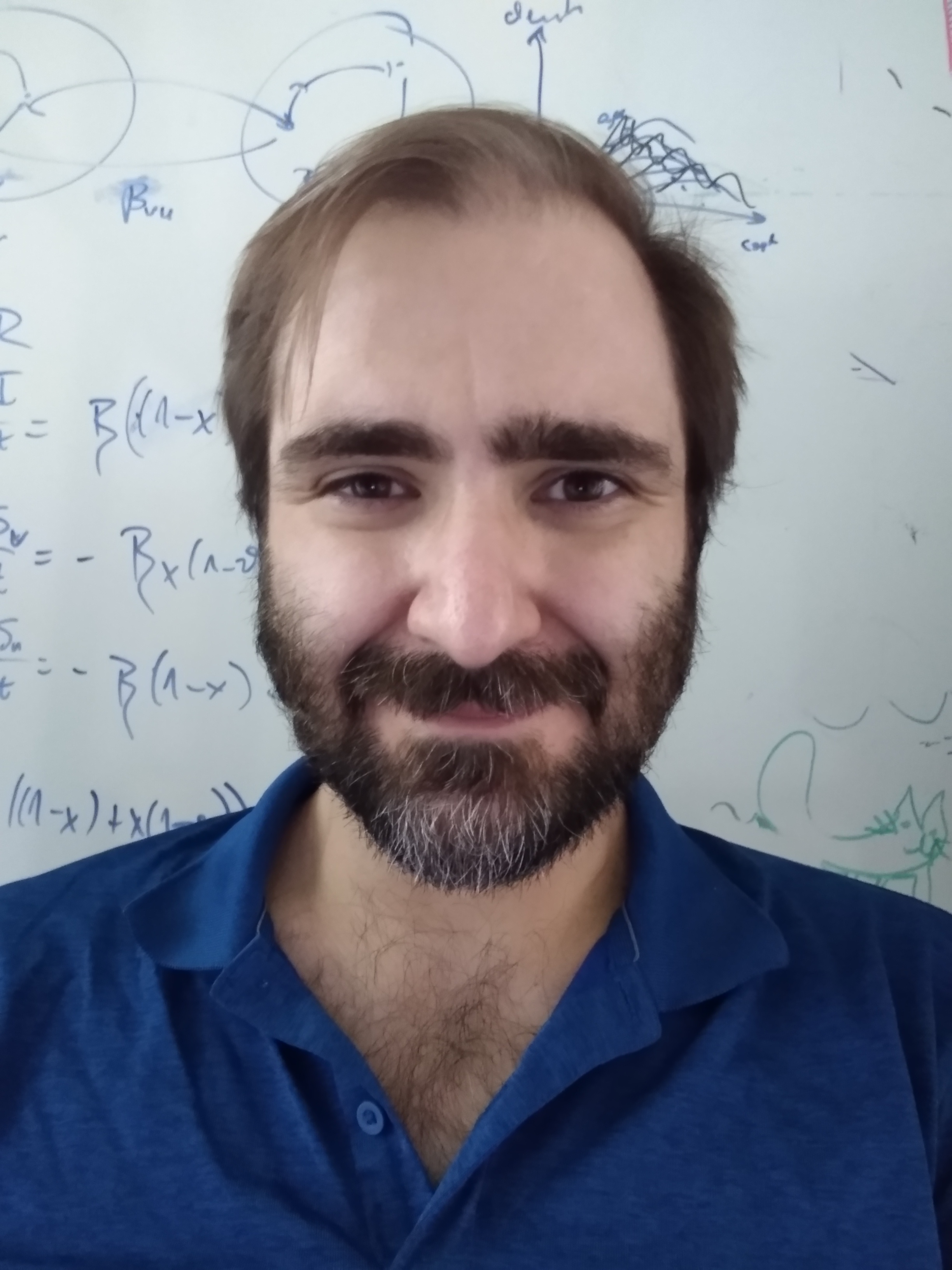Bryce Morsky
Theoretician @Penn

About
My research program has been primarily concerned with understanding biological and social systems through mathematical modelling. In particular, much of my work focuses on sociality in a variety of settings, such as human communities, cancer, and infectious diseases. Sociality has many roles in Nature from explaining multicellularity to civilization. Cooperation is important for the acquisition of resources for tumours, and for the establishment of effective herd immunity from vaccination. To study these systems, my work frequently employs a game theoretic framework and features social dilemmas, where the socially optimal state is untenable due to individual selfishness. I am interested in cases where social dilemmas arises, how they arise, and how they may be ameliorated. As such, I take an evolutionary and control approach to these systems.
I completed my MSc and PhD in Mathematics at the University of Guelph under the guidance of Chris Bauch, and was a postdoc under Derviş Can Vural. Currently, I am currently a postdoctoral fellow in Erol Akçay's group at the University of Pennsylvania.
Selected publications

Research
Social norms, identity, and coordination
I am broadly interested in sociality in humans: the role of social norms, human rationality, group formation, collective identity, and social diversity. Theory can address these topics and has roles in understanding the dynamics of human society with applications to social policy. My work in this field has addressed questions such as group formation through homophilic imitation and through dishonest signalling, and the emergence of normative meaning. Social coordination can be attained through the emergence of shared social norms, which occurs through an evolutionary process acting like a blind choreographer, analogous to Dawkins’ blind watchmaker [journal, bioRxiv]. Such social norms can be predicated on natural events that have no inherent meaning. And yet, normative meaning that coordinates society can emerge (more technically speaking, the system can evolve to a correlated equilibrium).
Social norms, institutions, and infectious disease
The spread of pathogens in human populations crucially depends on social, political, psychological, and economic factors. They can impact the efficacy of treatment and public policy through their effects on human behaviour. Social norms, cultural practices, and laws, both formal and informal, pressed by political and social institutions are examples. These and other behavioural factors may promote or inhibit the spread of disease, and thus have implications for public policy. Events of this past year have demonstrated with unusual force how critical the interactions between social and epidemiological dynamics are to controlling disease, and how much we still have to learn about them. I am interested in understing how policy and the various social, economic, and biological components of disease impact one another. With this understanding, we can design policies to best mitigate disease.
Sociality in cancer and bacteria
I am interested in the role of altruism in the ecology of cancer and bacteria. Cancer and bacteria can produce public goods that are prone to being taken advantage of by free-riders. Examples include angiogenic factors in tumours, and siderophore production in bacteria. Because cheaters do not pay the cost of production of these goods, they have more energy to compete against altruists. Cheaters thus seem to be detrimental to the tumour. However, the presence of cheaters can benefit the tumour as a whole in overcoming the immune response [journal,bioRxiv]. More generally, I am interested in how we can control a pathogen using our understanding of ecology and evolution. In particular, what are the roles of competition, cooperation, and phenotypic, genotypic, and spatial heterogeneity? And, how may we leverage them to design optimal treatment protocols?
Truncation selection
A further line of my research is understanding mechanisms of selection and evolutionary algorithms. The replicator equation assumes proportional selection: the number of offspring is proportional to the difference between the payoffs a replicator receives and the average payoff all other replicators receive. Under truncation selection, however, replicators with sufficient payoffs survive to reproduce [journal]. Interestingly, the mathematics of this project are related to those of a recent paper on timing in public goods games [journal,bioRxiv]. Both models are limits of a more general two-stage process represented by a differential algebraic equation. I am keen to continue this project by understanding the effects and relations between these and related concepts in evolutionary computation more deeply and by developing a more general theory of selection with applications to biology and computer science.
Contact
morsky(at)sas(dot)upenn(dot)edu
Department of Biology
236 Carolyn Lynch Laboratory
433 S. University Ave
University of Pennsylvania
Philadelphia, PA 19104